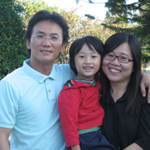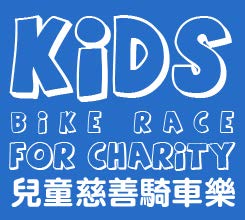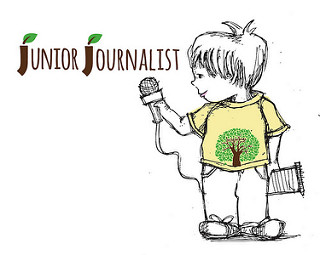CHILD DEVELOPMENT:
Learning Music the Fun Way ~
Q: How early should we expose our children to music?
A: My personal opinion and experience is to begin at the fetus. At this stage of their development, fetuses are already sensing rhythm and melody through the mother’s heartbeat. They can recognize patterns in beats and pick up higher or lower pitches; higher pitch can actually make the fetus more active. I encourage pregnant mothers to listen to music with sequence of patterns and rhythm. After the child is born and as they grow, they can pick up patterns and beats easily based on their past experience.
Q: Is classical music better than pop music?
A: I don’t agree with that theory that classical is always better. We should focus more on why music is beneficial to children. Human ears naturally respond to a tonal center (pitch that results in frequency that adjusts to the human ear). Music is more than sound; it is a harmonious combination of sounds and frequencies. Classical music is more technical, providing more of an organized tonal center and is easier for the ear to pick up; while pop music is more based on the current market and culture. I wouldn’t solely choose either classical or pop because both genres have their benefits.
Q: When is it suitable for kids to start music lessons? When are they really ready?
A: Parents need to know their child’s capabilities in a broad field of music before thinking of beginning music lessons. Can he or she recognize melody, singing, or simply humming? If yes, begin lessons! However, if no, don’t completely throw away the idea of starting music lessons. Try to find a music teacher who is able to discover your child’s abilities. For example, this can be revealed through testing of physical skills in finger flexibility, or through your child’s ability to echo a beat or rhythm by clapping.
Q: Is it a trend for children to begin piano or violin lessons at age 4?
A: In many Asian societies, the idea of young children beginning piano or violin lessons at such a small age has been passed down from previous generations. This has been perceived by many as being ideal. Instruments should be chosen by the child, himself or herself—I believe that this would be the best start. Try not to force it on your child.
Q: Is the theory of piano being easier and better to begin with true?
A: If your child really has no idea what he or she wants to learn and is simply discovering music, then by all means, go ahead with piano. Beginning with piano will benefit your child in the future through recognizing pitch and tone. I don’t recommend any type of brass instrument (flute, clarinet, etc.) for a young child because of their lack of physical ability. They may not have enough lung capacity or mouth muscles ready to take on these instruments. I encourage parents to open doors for children to begin exposing music through concerts, etc.
Q: Should I let my child try different instruments before settling on one?
A: In most cases, children have their preferences depending on their age or gender. For example, boys may prefer more “macho” type instruments-trumpet, etc; while girls tend to pick instruments that are smaller or easier to manage. Parents can help this decision by bringing their child to concerts that showcase various instruments.
Q: Which is your opinion on music theory methods? (Suzuki, Yamaha, etc.)
A: Know these teaching methods—who are their targets? Why are they in the market? Some theories suggest that children should learn how to sing before learning an instrument, while others encourage children to play percussion. Most of these methods are for younger children and, sometimes, are a marketing ploy to interest more students to join their programs. Each method provides fundamental training that can be obtained through daily sports activities. I believe children already develop skills in multitasking through daily life that is not only gained through these music theory methods.
Q: What is a parent’s role in a child’s music education? What can we do?
A: If allowed by the music teacher, parents should request to be present during the learning session. In a very direct sense, the child would have a higher sense of expectation, thus achieving higher standards. Being present in the class also allows for the parent to observe what has been presented to the child. This makes follow-up and review during the week between courses to be more efficient.
Q: What if my child is unmotivated to practice?
A: I encourage parents to find music teachers who can be a guide to the child—they should give direction, but how each child achieves this goal is different. Parents should try to motivate children by presenting expectation based on what the child can achieve, through positive interaction and clear communication with the teacher. Over time, a child’s behavior will become a habit (either good or bad), so start early!
Q: How do we find a good teacher?
A: Usually music teachers are discovered through parent referrals. However, this may not always be ideal because one child’s learning style and abilities can be completely different from another child’s. Parents need to have the right motivation to find a good match between teacher and student. Don’t base this match on a fancy performance or a good price, but base it on a harmonious teacher and student interaction.
Disclaimer: La JaJa Kids forms an advisory board that consists of physicians, medical specialists, academics and teachers, to share professional advice on voluntary basis. Information provided above is for reference only, our publication and member of the advisory board will not be liable for the content in any legal manners.

Mike is also a father
of a 5-year old boy.
Mike Chiu’s Profile ~
Mike has been teaching piano for nearly 10 years.He has extensive skills and experience in working with young age student from 4, providing teaching and service from the entire Los Angeles county and Riverside County.
He has previously taught many children with disabilities in Foundation For Disabled Youth (FFDY), an Asian non-profit organization. And, throughout these years, Mike contributed his effort providing music performance publicly to assisting and participating the FFDY’s annual fund-raising event.
Throughout the past decade, Mike has contributed his effort and experience enthusiastically in teaching several hundred students. WIth Mike’s effort and assisting, some students were able to achieve in passing and skipping their skills and levels successfully from Certificate of Merits (CM), the California State Music Exam.
Q: What is the best parenting advice you ever got?
A Father’s Prayer, by Douglas MacAthur.
Q: What are your best parenting resources?
Cheng Yen’s Jin Si Aphorisms.
Q: Do you have any family traditions or routines? What are they?
Spend a little moment as to cuddle together during the bed time.
Q: A talent that you wish your children possessed is…
Intuitive mind to judge and break through all obstacles in his life with the positive result.
Q: What present will you give your child on his/her 10th birthday?
Drop his school books and backpack! And, I will take him to travel. Where to… simply will not be the question, but more likely a journey enable him to learn and make it his life long joyful and remarkable trip to learn and see the world.
Q: Name a recent children’s book or movie/program. Why is it rewarding?
Pink Panther, Tom & Jerry and some video games earne us another treasuring moment over and over again with great laughter.
Q: What is the most impressive thing that happened between you and your child lately?
Perhaps, I am a sensitive parent. I see and feel virtually everything to be impressive that happened in between us. A simple sentence: “Can you come home early? Please drive slowly!”, or a wink from his eye with pure smile… Not only that could impressive me, but more than a heart melting like a carved image that stays in my mind forever.
Q: What inspired you to give your child the name that you did?
Frederick’s name was inspired by Chopin, a romantic period music composer. He was born at that moment when I had a piano recital performing mostly by Chopin’s works. Hence, I decided to name my son’s first name as Frederick.






